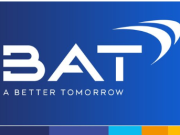Professor Richard Edwards, an Otago University academic and co-director of the ASPIRE 2025 project, is pointing out that excessive and hidden voluntary price hikes are a common practice of tobacco companies across the globe. “The industry tends to portray itself as fighting tax increases so as to help out smokers, when really it is clear they often use such increases to bring in price increases that they blame on the government.”
An analysis has shown that Kiwi tobacco companies have been using annual tax increases to cover price hikes, and these have naturally increased the companies’ profit margins. An article on Newsroom has pointed out that in March 2010, an average cigarette pack cost $13.46.
“Of that price, $7.86 was excise tax and $5.60 was revenue for tobacco companies. By March 2019, the average price had skyrocketed to $37.48. Of that price, the government took $23.12. But the most striking change was that tobacco companies had almost tripled their average revenue per pack to $14.36.”
These voluntary price increases have been hiding in plain sight. While regular tax increases have increased the price of an average cigarette pack by approximately $1.70 per year, tobacco companies have simply added an extra $1 to go into their own pockets.
Voluntary price hikes
Despite feeling frustrated by increased cigarette taxes, many smokers understand the reason and logic behind them. However, when informed about tobacco companies’ voluntary price hikes, outrage was naturally the most common reaction. “It just seems wrong … [Tobacco companies] know people get addicted and then just make us pay more money for something they sold us that we’re addicted to. It’s great for their pockets, bad for ours.”
When asked for comments about these price hikes, a British American Tobacco (BAT) spokesperson redirected his comment to focus on tax increases. “The key reason that the price of cigarettes is so high in New Zealand is the amount of tax smokers pay. These taxes have increased 165 percent since 2010.”
Long way off from reaching smoke-free goal
Meanwhile, renowned Canadian public health expert, Mr. David Sweanor, has recently pointed out that New Zealand is still “a long way off” from being on track to reaching its “smoke-free” goals. “I think they’ve recognized they’re not going to hit the smoke-free goals they’ve had for 2025. They are a long way off,” he said.
“They are particularly off with Māori population. When we have the rates of smoking in an excessive 30% with a plan to get that to 5% in half a decade,” added Sweanor. To this effect, Maori public health entity Hāpai Te Hauora has been leading the way amongst Māori health organisations in encouraging smokers to switch to vaping.












